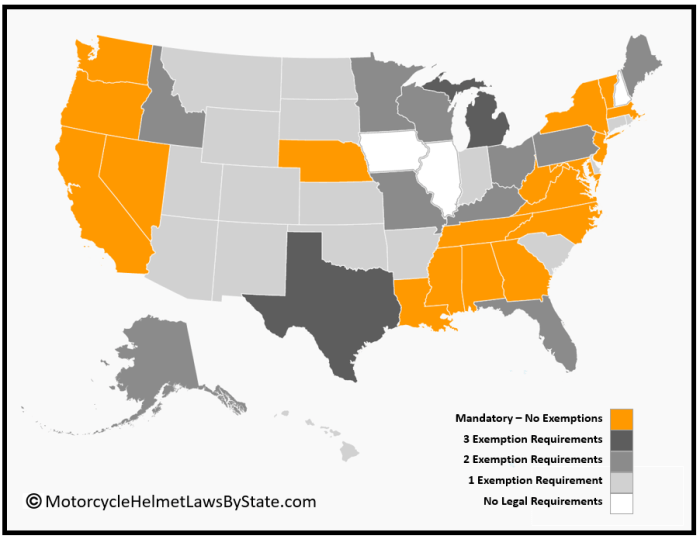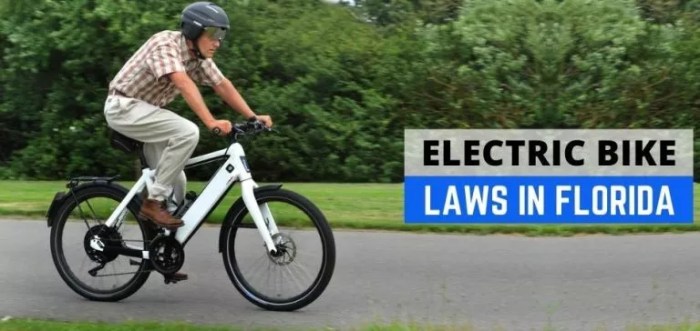Florida law requires that motorcycles must always be operated with specific safety features to enhance rider safety and reduce the risk of accidents. These regulations are designed to protect motorcyclists and ensure their well-being on the road.
This article will delve into the details of Florida’s motorcycle safety regulations, exploring their rationale, enforcement mechanisms, impact on safety, and public perception. We will also discuss exceptions and special circumstances where certain safety features may not be required.
Florida Motorcycle Safety Regulations: Florida Law Requires That Motorcycles Must Always Be Operated With

Florida law mandates that motorcycles be equipped and operated with specific safety features to enhance rider protection and reduce accidents. These regulations aim to promote motorcycle safety and minimize the risk of injuries and fatalities.
Safety Regulations
Florida’s motorcycle safety regulations require:
- Helmets: All motorcycle riders and passengers must wear approved helmets.
- Headlights: Motorcycles must have functioning headlights during operation.
- Turn Signals: Motorcycles must be equipped with operational turn signals.
- Mirrors: Motorcycles must have at least one rearview mirror.
- Brake Lights: Motorcycles must have functional brake lights.
- Exhaust Systems: Motorcycles must have properly functioning exhaust systems to reduce noise pollution.
Compliance Enforcement
Law enforcement officers in Florida actively enforce motorcycle safety regulations. Violations may result in fines, penalties, or license suspensions. Public awareness campaigns are conducted to educate riders about the importance of compliance.
Impact on Motorcycle Safety, Florida law requires that motorcycles must always be operated with
Florida’s motorcycle safety regulations have had a positive impact on accident rates and fatalities. Studies have shown a significant decrease in motorcycle-related injuries and deaths since the implementation of these laws.
Exceptions and Special Circumstances
There are limited exceptions to Florida’s motorcycle safety regulations. In emergency situations, riders may be permitted to operate without a helmet or other safety features. Certain types of motorcycles, such as antique or classic models, may also be exempt from some regulations.
Public Perception and Acceptance
Public perception of Florida’s motorcycle safety regulations is generally positive. Riders recognize the importance of these regulations in protecting their safety. However, there have been occasional debates regarding the necessity and effectiveness of certain regulations.
FAQ Summary
What are the mandatory safety features required for motorcycles in Florida?
Florida law requires motorcycles to be equipped with headlights, taillights, brake lights, turn signals, mirrors, and a horn. Helmets are also mandatory for all motorcycle riders and passengers.
What are the consequences of violating motorcycle safety regulations in Florida?
Violating motorcycle safety regulations in Florida can result in fines, penalties, and license suspensions. The specific consequences depend on the severity of the violation.
Are there any exceptions to Florida’s motorcycle safety regulations?
Yes, there are a few exceptions to Florida’s motorcycle safety regulations. For example, motorcycles manufactured before 1970 are not required to have turn signals. Additionally, certain types of motorcycles, such as racing motorcycles, may be exempt from some safety requirements.

